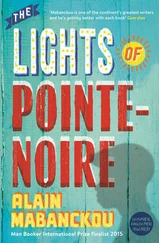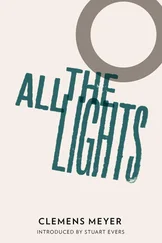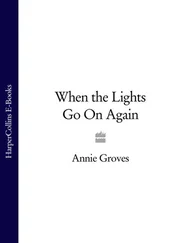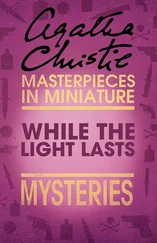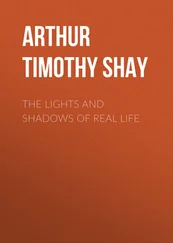The lieutenant looked at me, and I lost myself in the muddle of my uncertainty. How could the boatwright's coloured vessels have subdued the democracy of the liberty ships?
The lieutenant said, ‘That forgotten line that Brutus spoke – what do you think it might be? If we discovered it, in a dusty codex in one of your southern Italian abbeys, we'd understand which is more important, Luck or Bravery: I'm sure of it.’
Thus began our forty days across America, ‘rich in Virtue and poor in Luck’, as the infantrymen wrote on their memorial at El Alamein. The lieutenant looking for his line of Brutus, me looking for a ship to save my shipwrecked love and my life itself by interpreting the dreams of Odysseus in the lost war.
The girls were sitting at the corner table of the coffee shop. The slimmest one was drinking black Coke from a frosted glass: she sucked gently on the straw, eyes fixed on a point straight ahead of her and then opened her red lips and sucked again. The fairest one struck her fingers lightly on the gleaming table, tap tap tap, the middle, ring and index fingers, then the middle one again in counterpoint, tap tap tap. She was wearing a skirt that bared her knees, soft and round. Last of all, in the shade, a glimpse of her, the smallest one. Not the prettiest, perhaps: she neither drank nor followed the rhythm of the big band brass section that blared from the Bakelite radio. Her hair was short, and hung in a fringe over her slanted, oriental eyes. She filled the space with her face and her hands and her breasts and her thighs, as though the air were water that could support her and make her float. As though, all of a sudden, she might swim: a little dive on her cork-soled shoes and away, with quick and lazy strokes up to the fan that flapped on the ceiling, slothfully stirring the hot air. The girl would brush the beer bottles on the highest shelf with her skirt floating, she would swirl out of the bar, away over the burning earth of Hot Springs in the dusty state of Arkansas.
Her energy was apparent from her perfect stillness: like a swamp alligator, ready to strike from its motionless tree-trunk stability, descending with a whipcrack on its prey, and yet a moment before framed and lost in the hot mud. That was what the girl with the oriental eyes was like, or at least that's how I remember her now as I write about my first moment with her. Rather than trying to imagine her face again, I'm trying to feel the heat and emotion I felt then, which some of my gentle readers will have felt on at least one day of their lives, when they met their ‘twin soul’ as Plato would say, the other sexual half that we all have, from which we were parted at some time in the distant past. Today I feel that emotion again, in its entirety.
I looked at her, I fully expected her to dive away and swim in an erotic crawl, free from gravity, in that banal café in the shadow of the wild Ozark Mountains. It's certainly possible, even likely, that my memory has been falsified by my forty-day journey, and by what I later experienced with her. The reality was probably quite different. An ordinary Italian fool, defeated in the desert sand, broken in the Bardia winter, was seeing beautiful young girls for the first time in years, was free to observe them without hierarchy or hindrance. A prisoner of war spends his time thinking about women, forgets what women are really like. In the camp, I would wake with a vision of Zita before my eyes, summon the patience to stand in the queue for the latrine, keep a firm grip on my memory of those hours of mathematical analysis on the creaking wooden table because Zita and her perfume and her flesh existed beyond the sea and, in darkness when I was in the Texan sun, in light while I slept in the breathless night of the camp, she too trod the planet with feet that I would greedily have kissed in the shadow of the faraglioni.
That was how I had lived, as a free man and a prisoner, until she had decided to marry Professor Barbaroux, and then my fate too had been captured, along with my future as a POW. No one could possibly bear that two-fold imprisonment, knowing that one was a prisoner in the present and the future, without paying the price of madness or resignation. So I had escaped, into the great concentration camp of real life and the jokes it plays, vaster and more cruel than Hereford.
The lieutenant's voice rang out in a singsong: ‘Here we are in Hot Springs, in Arkansas. This is where the wounded and the convalescents of America come to regain their lost health. Europe cripples them in war, the springs restore them. No one will notice us here. We can rest. We've a long way to go before we get to New York.’
He got up and winked at the table of girls. ‘What kind of GIs are we if we don't cat around? Chastity will get us noticed.’
The three girls gave the lieutenant a chilly welcome, edging up to let him sit down. The most spirited of them shook his hand and started to chatter.
I was left alone at our table. A prisoner or free man? I couldn't work it out, but I wasn't willing to lose my only true feeling of independence: my pain over Zita and the decision to cross the USA in captivity, all for her.
The coffee was good, the apple tart fragrant. From the back of the gleaming wooden room came the notes of a song that one of the girls was singing in a low voice, accompanying the radio. One of the songs in vogue that spring, with the kind of sweet refrain and sentimental words that made girls cry. ‘I heard that lonesome train whistle blow …’
Better to stay and look at the light outside the door, Main Street shining in the sulphurous dust of the springs. Then I felt the smallest girl's hand on my thigh, just where I had traced the three letters POW with toothpaste, then rubbed them out as I prepared to escape. The fabric was worn away by washing with the regulation fatty yellow soap and hours flapping on a line over the prairie, a banner of forgotten poverty, while we sat on a step with a letter clutched in our fists and our eyes lost somewhere beyond the water tower. It was as though the girl's hand was Zita's, and the soft veil of military beige heightened its warmth, its gentleness, its life.
No one ever touches a prisoner's body except to inflict violence, or some kind of punishment. The responses of the camans to a vague gesture of protest, the rough jostling of your comrades as you queue for an egg, the acrid stench of disinfectants, the thorny blankets and, when you're in transit, the hardness of the benches, the bumps of the wagons, the steel needles of the vaccine that welcome you to the camp.
Months without seeing, or speaking to, or breathing the air of a woman. There were the girls employed at the camp orderly office, resolute and cheerful Texans. They considered the Italian men with a certain fascination. Certainly they despised us – ‘Happy go lucky!’ they called us – but then some of them fell in love with the lieutenants and sergeants with their glistening hair. The Italians sang, they were nice, they didn't kiss as though they were chewing gum, and when it was dark they knew the names of all the stars, or if they didn't know them they knew how to name them passionately after Mary, Lucy or Joy. After the war, many American girls went to join their heartthrobs in Naples, and emotional nuptials were celebrated.
One day two secretaries came to Camp 1, where the hardliners were kept, and sat down on our benches. They stretched out their nylon-clad legs on the freshly swept floor, forcing us to climb over their calves and gleaming heels. Perhaps it was a bet, perhaps it was indifference, or perhaps one of them was in love with one of the prisoners. Then they left, in their best regulation posture, and Fefe, the funniest one of all of us, Fefe who had seen his Captain Urbani in Africa sodomised in an act of reprisal by Moroccan guards, French Souaves, stretched himself out on a bench groaning, rubbing himself on the wood and whimpering while we laughed.
Читать дальше

